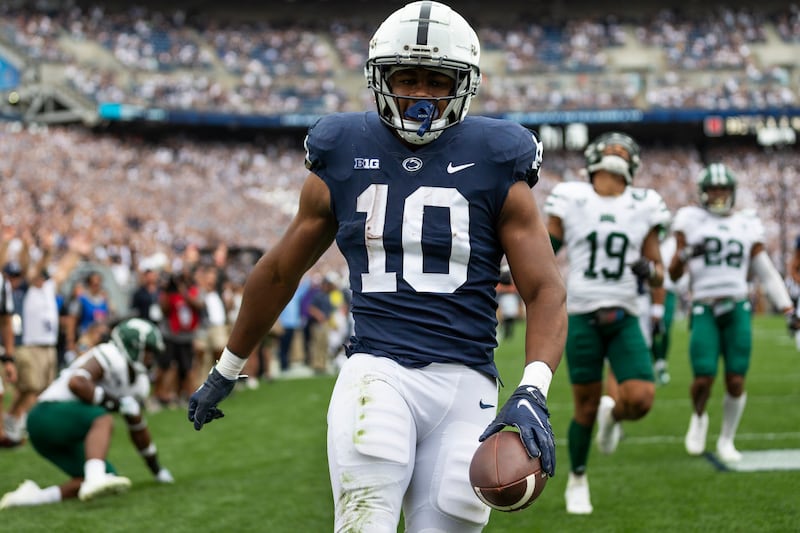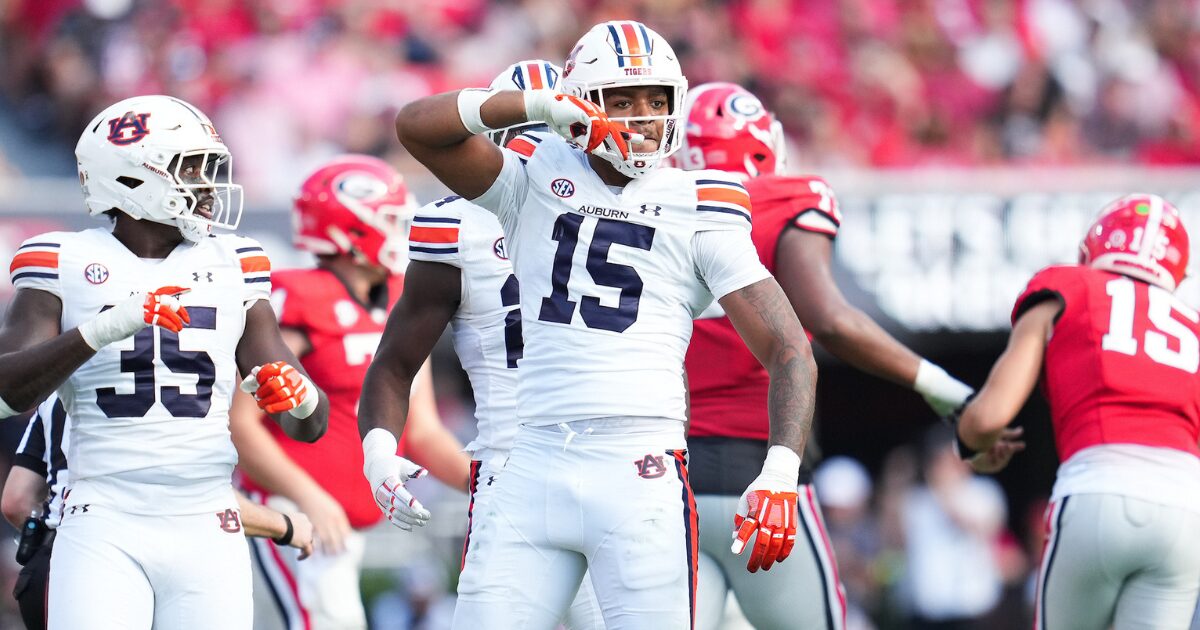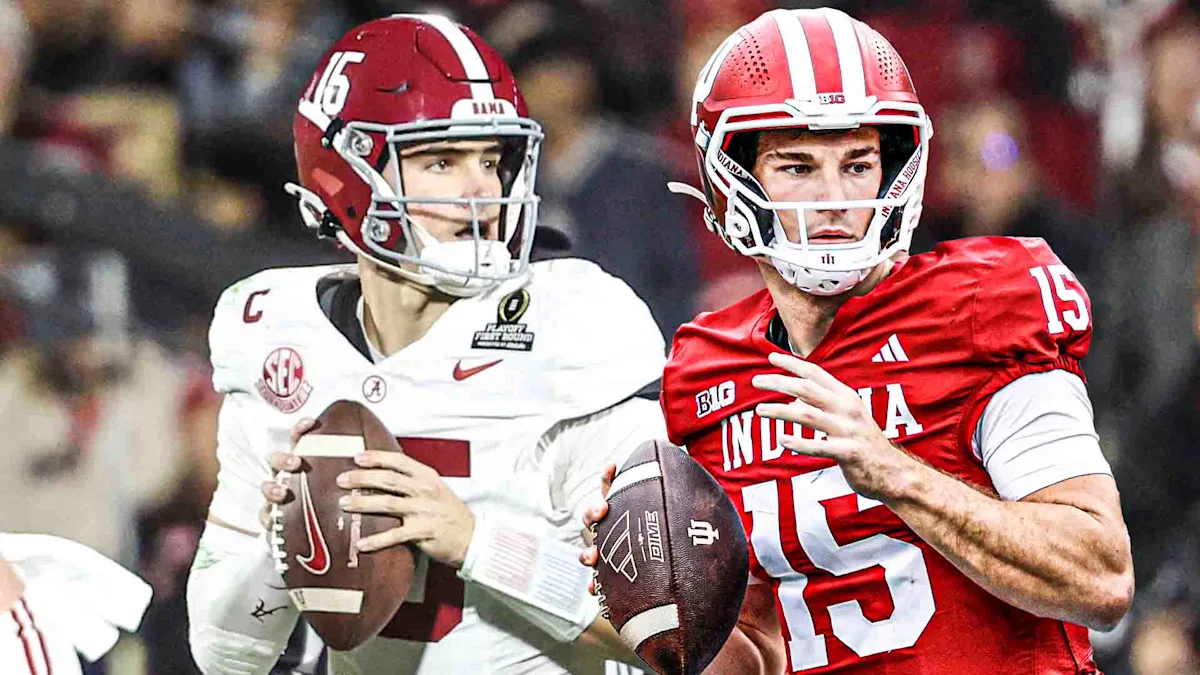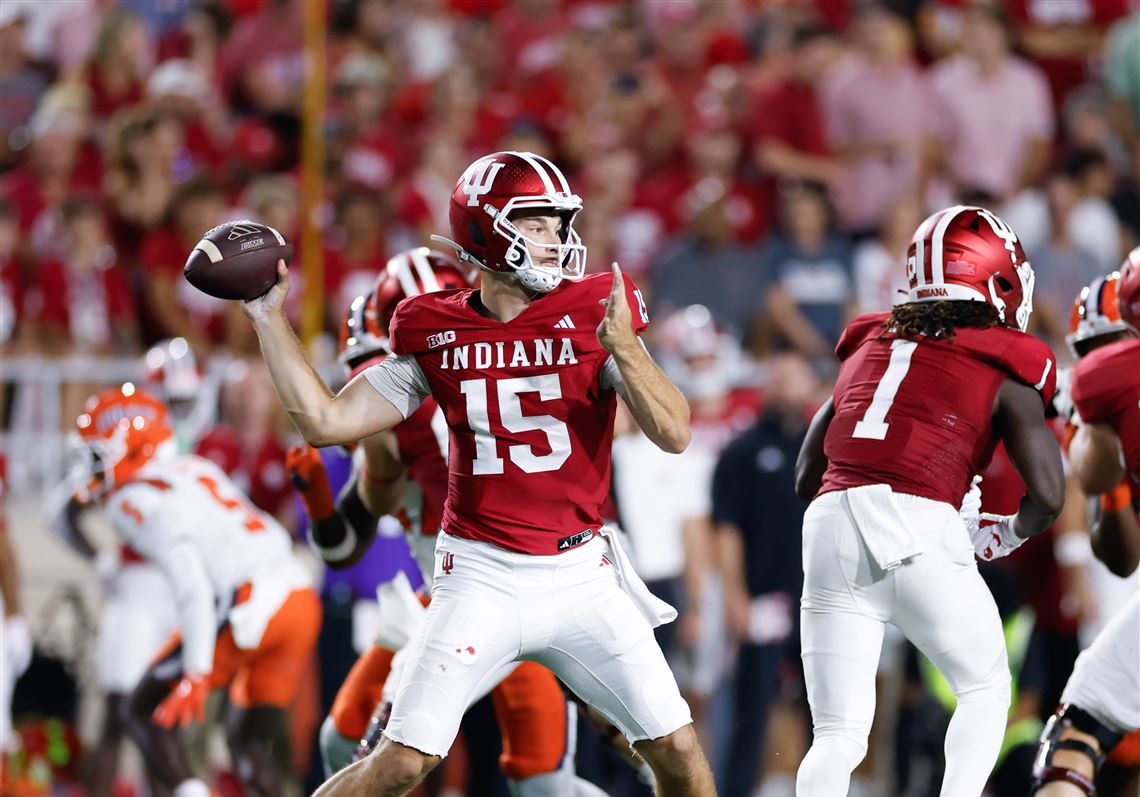By Charlie Campbell.
Send Charlie an e-mail here: [email protected]
Follow Charlie on Twitter @draftcampbell for updates.
This page was last updated April 14, 2022. Follow me @walterfootball for updates.
Position Review: Tight Ends
Tight End Class
Early-round talent: D-
Mid-round: C
Late-round: D
Overall grade: D
Merging the 2022 and 2021 prospects
Kyle Pitts
Pat Freiermuth
Trey McBride
Greg Dulcich
Jalen Wydermyer
Hunter Long
Tommy Tremble
Tre’ McKitty
Charlie Kolar
Isaiah Likely
Just to be clear this article and series is all my opinion based off my own study and information I’ve gotten from general managers, directors of college scouting, national scouts, area scouts, and NFL coaches who know way more than I do.
The 2021 NFL Draft was an underwhelming year for tight ends, although it did have a generational talent at the position with Kyle Pitts. This year’s tight end class is somehow worse than last year. The 2022 group does not have a first-round prospect, and it may only have one prospect go in the second round. The 2022 NFL Draft, however, could have better depth in the mid-rounds.
If you were to merge the two classes, it would be an easy comparison because no other player is even in the ballpark of Kyle Pitts. Trey McBride, Greg Dulcich and Jalen Wydermyer are not as good as 2021 second-round pick Pat Freiermuth. Those three are better prospects than Hunter Long was. Charlie Kolar and Isaiah Likely are not as good of prospects as Tommy Tremble and Tre’ McKitty were.
Safest Pick: Trey McBride, Colorado State

Previous Picks:
2021: Kyle Pitts
2020: Adam Trautman
2019: T.J. Hockenson
2018: Hayden Hurst
2017: O.J. Howard
2016: Hunter Henry
2015: Clive Walford
2014: Eric Ebron
2013: Zach Ertz
My track record here is decent. Hockenson looks like he will be a solid tight end after an improved second season. Hurst could still turn into a good pro in Atlanta. Howard is a good player when healthy, although he has not always been utilized.
Henry has been solid and landed the franchise tag. Walford is the one big blemish thus far because he didn’t stick with the Raiders. Ebron was a disappointment as a top-10 pick for Detroit, but he has turned into a mismatch receiving tight end with the Colts, while Ertz has been one of the better tight ends in the NFL.
This was an easy selection because McBride is the most well-rounded tight end prospect in the 2022 NFL Draft. He looks like a future three-down starter in the pros. McBride has the skill set to be a dangerous receiver and a good blocker who helps open holes or protect his quarterback. McBride looks like he could be a second- or third-round pick in the 2022 NFL Draft and develop into a solid three-down starter.
Biggest Bust Potential: Grant Calcaterra, SMU

Previous Picks:
2021: Hunter Long
2020: Hunter Bryant
2019: Noah Fant
2018: Jordan Akins
2017: Adam Shaheen
2016: Nick Vannett
2015: Nick O’Leary
2014: Jace Amaro
2013: Gavin Escobar
My track record here is pretty good because the majority of those tight ends didn’t pan out and many were early-round picks. This year was a tough projection because there weren’t early-round prospects, so there really isn’t a true bust as the majority of mid-round and third-day picks don’t make it in the NFL.
Calcaterra has a shot at being a second-day pick from a talent perspective. He has some speed and athleticism as a receiver, but he is undersized and lacks the strength to block. Calcaterra could be a limited pro and end up not working out for the team that selects him in the 2022 NFL Draft.
Tight End Rankings by Attributes
Pass Receiving:
NFL prototype: Travis Kelce, Chiefs
- Trey McBride
- Jalen Wydermyer
- Greg Dulcich
- Isaiah Likely
- Charlie Kolar
Recap: The NFL has evolved to the point where tight ends are a critical part of a potent passing attack. Some teams have better receiving weapons at tight end than they do at receiver. The league is driven by passing, so if a tight end can’t contribute as a receiver, he could have a hard time seeing the field. This draft class has some tight ends who can do damage as receivers.
McBride has the skill set to be a dangerous receiver down the seam and in the red zone like he was in college. McBride has enough quickness to get downfield, but he is not a fast tight end. He has excellent hands and is very skilled at going up high to make receptions over defensive backs. Even though he isn’t the biggest of tight ends, he has good body control and uses his size well to shield the ball from defenders to make receptions. With good play strength, McBride uses his power to disengage from defenders to get open after contact is initiated. McBride runs good routes, is smart to find the soft spots in zone, and has good feel as a receiver.
Wydermyer is a dynamic receiving weapon who is a coverage problem. Team sources have raved about his route-running, which is a real asset for getting open for his quarterback. Wydermyer doesn’t take extra steps, is crisp on his cuts, and will suddenly find space from defenders. For the next level, Wydermyer’s route-running is very advanced. His mismatch size makes him a problem for defensive backs because he towers over them with a large wing span and catching radius. Hence even when he is covered, Wydermyer is capable of making a big play for his quarterback by winning 50-50 contested catches. On top of his height and thick frame, Wydermyer has quality speed and quickness. He gets downfield quickly and is adept at finding soft spots in coverage. With good foot speed, Wydermyer is too fast for most linebackers and can burn them in man coverage. He shows a second gear after the catch to accelerate for more yards, and his big size makes him tough tackle in the secondary. His yards-after-the-catch ability makes him even more intriguing for the NFL.
Dulcich is a solid receiving tight end who could be a valuable contributor and a mismatch problem for defense. He is a good athlete with speed to generate separation from coverage. Dulcich shows a nice burst out of his breaks to create space from defenders and get open for his quarterback. Dulcich has nice twitch for a tight end of his size and second-gear quickness. He does a nice job of working the middle seam and slants, and is capable along the sideline. With his surprising speed, Dulcich can challenge defenses vertically running down the seam or along the sideline. As a receiver, he could stand to get more consistent with his route-running and increase their crispness. Dulcich can round off some routes and take extra steps, but that is something he can improve with pro coaching. Another point of improvement for Dulcich is working on getting off jams and using his size to push defenders away when they initiate contact in his routes. Dulcich will allow himself to get tied up and rerouted even though he has a size advantage, so getting more aggressive and physical with defensive backs will make him an even more dangerous receiver.
Likely is a solid receiving tight end who could be a valuable contributor and a mismatch problem for defense. He is a good athlete with the speed to generate separation from coverage, and he is a quality route runner. Likely has a quality burst out of his breaks to create space from defenders and get open for his quarterback. Likely shows nice twitch and second-gear quickness after the catch. He does a nice job of working the middle seam as well as slants, and is capable along the sideline. With his surprising speed, he can challenge defenses vertically running down the seam or along the sideline. Likely is a strong, tough runner who could be a nice receiving weapon in the NFL.
Kolar has the ability to be a contributing receiving tight end at the next level. He is a very intelligent player who has good feel and vision, which he uses to rip up zone coverage. With his quick ability to read the defense, Kolar finds soft spots quickly to get open for his quarterback and presents a sizable target. While Kolar is not a burner, he has enough functional speed to get downfield and some athleticism to run quality routes. Kolar uses his feel, quickness, size, and athleticism to consistently get better positioning on man coverage. With his size, he is very adept at walling off defensive backs to win on contested catches. His height, reach, and leaping ability allow him to make receptions over defenders, and Kolar is a real asset in the red zone. He is a natural hands catcher who should be very reliable at completing the catch for his NFL quarterback. After making the reception, Kolar has some ability to pick up yards. He fights through tackles and never goes down with a fight. He does not have the dynamism to run away from defenders or be a bowling ball who breaks a ton of tackles, but he will be capable of picking up more yards through his size and quickness.
Blocking:
NFL prototype: T.J. Hockenson, Lions
- Trey McBride
- Charlie Kolar
- Greg Dulcich
- Isaiah Likely
- Jalen Wydermyer
Recap: Blocking ability is still important for NFL tight ends; not just in the ground game, but in pass protection. Teams like their tight ends to have the ability to help offensive tackles when they’re going against an elite edge-rusher and contribute to helping cover up tacklers in the rushing attack. In this group, there isn’t one player who is an elite blocker, although none of them are terrible.
As a blocker, McBride is going to be an asset for his NFL team. In the ground game, McBride is a good drive blocker who should be a solid contributor to his team’s running offense at the point of attack. He also is very good in pass protection, riding defenders around the quarterback. McBride should be a real asset in that phase for the NFL. That also means he isn’t limited to one part of the offense and can be out there on every down. McBride could turn into a 10-year quality starter in the NFL.
Kolar also is not liability as a blocker. He gives a quality effort while having the size, weight, and strength to take on NFL defenders. After some development, Kolar should be an effective blocker as a pro.
As a blocker Dulcich contributes and willing to throw his body into defenders. He could stand to get better technique to sustain his blocks and improve his hand placement to tie up defenders rather just throwing his torso into them.
Likely has room for improvement with his blocking entering the pros. He should add strength because he can struggle to sustain blocks, and he could stand to show more willingness to block. While Likely will never be an impactful blocker, he should be able to improve enough to contribute somewhat to the ground game and help protect his quarterback. Likely needs to up his intensity and competitiveness and show more fight as a blocker and go through the whistle. Just being tenacious would create a significant improvement immediately.
Like the majority of most college tight ends, Wydermyer could stand to improve his blocking for the NFL. He has the size and strength to do it, so after some development he could be a well-balanced player to attack defenses in both phases.
Red Zone:
NFL prototype: Darren Waller, Raiders
- Isaiah Likely
- Charlie Kolar
- Trey McBride
- Jalen Wydermyer
- Greg Dulcich
Recap: Tight ends are critical players in the red zone. Multiple tight ends are needed for goal-line packages. Many teams also like to use double-tight end sets inside the 20-yard line. A tight end who is a big target with sure hands and leaping ability is a good weapon to help produce touchdowns instead of field goals. Also, being an effective blocker is very helpful in the condensed field, short-yardage situations, and at the goal line. Tight ends who are terrible blockers aren’t options for goal-line packages.
Over the past four seasons, Likely was very effective as a red-zone weapon, collecting 27 career touchdowns. He has quality size and is very adept at going up to make contested catches over defenders. Likely high points the ball well and has strong hands that he uses to control the ball while getting hit. Likely definitely has a nose for the end zone and should be an asset in the red zone, where he was very good at producing touchdowns in college.
Kolar is a real asset for the red zone. With his size, he is very adept at walling off defensive backs to win on contested catches. His height, reach, and leaping ability allow him to make receptions over defenders. Given that he possesses some blocking ability, Kolar should be a steady red-zone presence for his pro team.
McBride was not as productive in the touchdown department as Likely, Kolar and Wydermyer. McBride, however, is a superb blocker, which makes him valuable in the red zone. He can contribute in receiving, blocking for the rushing attack, and protecting his quarterback.
Wydermyer is dangerous in the red zone with his mismatch size and leaping ability. He could make life very difficult on defenses. He can split out wide and sky over man coverage thanks to his size and speed. On 50-50 passes, Wydermyer is a weapon who is never really covered because of his ability to make acrobatic grabs over defenders or use his big frame to box out defenders. Wydermyer notched 16 touchdowns over the past three seasons despite playing with subpar quarterbacks.
In the NFL, Dulcich should be a valuable player in the red zone with his receiving ability and capable contributions as a blocker. He could use more development, but he has the potential to be an asset.
Hands:
NFL prototype: George Kittle, 49ers
- Trey McBride
- Greg Dulcich
- Isaiah Likely
- Charlie Kolar
- Jalen Wydermyer
Recap: Tight ends with bad hands don’t get thrown the ball often in the NFL. They have a hard time seeing the field and end up only playing in goal-line situations and on special teams. In the group above, the only player who has problems with dropped passes is Wydermyer. He can be reliable, but he has spells where he struggles and drops some easy completions.
McBride has the best hands of this group and is natural at catching. Dulcich has really soft hands as well. Likely and Kolar were simply reliable in college.
H-Back:
NFL prototype: Mark Andrews, Ravens
- Greg Dulcich
- Isaiah Likely
- Jalen Wydermyer
- Trey McBride
- Charlie Kolar
Recap: Many offensive coordinators like tight ends with the flexibility to line up as an h-back. That allows the offense to set up more mismatches and align blocking schemes differently. Not all tight ends have the athletic ability and quickness to pull off h-back responsibilities. Aaron Hernandez was superb at it for New England and was the prototype a number of years ago.
Dulcich projects as the best h-back tight ends of this group and was moved around at UCLA. He has the build to go with the quickness and athleticism for h-back. Likely is similar in that he possesses the athleticism and frame to handle some h-back responsibilities. Wydermyer is longer than most players who play h-back, but he is such a quality athlete who he could execute out of h-back and provide huge mismatches in that role with one-on-one routes versus linebackers. McBride is similar where he would be a big h-back, but he has enough quickness and athletic ability to execute some h-back plays. Kolar doesn’t look like a good fit for h-back.
Yards After Catch:
NFL prototype: Rob Gronkowski, Buccaneers
- Greg Dulcich
- Jalen Wydermyer
- Isaiah Likely
- Trey McBride
- Charlie Kolar
Recap: There are some tight ends in the NFL who are very dangerous with the ball in their hands. Having the ability to pick up yards after the catch (YAC) is not an easy trait to find in tight ends. This class has some quality YAC tight ends, and none of the five featured here is bad at it.
Dulcich shows nice running ability after the catch, darting downfield and using his strength to power through defensive backs to finish runs well and pick up some extra yardage after contact. In the NFL, Dulcich should be a valuable player in the red zone with his receiving ability and being capable of contributing as a blocker.
After the catch, Wydermyer shows a second gear to accelerate for more yards, and his big size makes him tough for the secondary to tackle. His YAC ability makes him even more intriguing for the NFL.
Once Likely makes the catch, he runs well enough and has sufficient power to pick up additional yards. He has some quickness and a second gear in the open field. Throughout his college career, Likely was consistent at producing some chunk receptions and big plays.
McBride has a strong build that allows him to run through tackles after the catch, and he is tough for defensive backs to get on the ground. McBride runs aggressively and will pick up yards after contact.
After the catch, Kolar has some ability to pick up yards. He forces his way through tackles and never goes down without a fight. Kolar is not sufficiently dynamic to run away from defenders or bowl through a ton of tacklers, but he will be capable of getting more yards thanks to his size and quickness.
2026 NFL Mock Draft - Feb. 17
NFL Picks - Feb. 9
Fantasy Football Rankings - Jan. 29
NFL Power Rankings - Jan. 26




